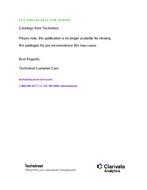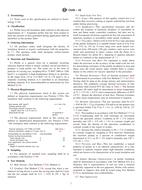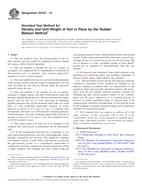1.1 This test method covers the measurement of the steady-state heat transfer properties of pipe insulations for pipes operating at temperatures above the ambient environment from approximately 40oC to the maximum insulation design temperature. Specimens may be rigid, flexible, or loose-fill, may be homogeneous or nonhomogeneous, isotropic or nonisotropic, and of circular or noncircular cross section. Measurement of metallic reflective insulations is included in this test method; however, additional precautions must be taken when these materials are being evaluated.
1.2 When appropriate, or as required by specifications or other test methods, the following thermal transfer properties for the specimen can be calculated from the measured data (see 3.2 ):
1.2.1 The thermal resistance and conductance,
1.2.2 The thermal transference,
1.2.3 The surface resistance and heat transfer coefficient, and
1.2.4 The apparent thermal resistivity and conductivity.
1.3 This test method applies only for testing of insulations on vertical pipes, and the results will only apply for insulations installed vertically (see Note 1).
1.4 The test pipe may be of any size or shape provided that it matches the specimens to be tested. Normally the test method is used with circular pipes, however, its use is permitted with pipes or ducts of noncircular cross section (square, rectangular, hexagonal, etc.). One common size used for interlaboratory comparison is a pipe with an 88.9-mm outside diameter (standard nominal 80-mm, 3-in. pipe size).
1.5 This test method covers only the guarded-end type of pipe apparatus. No experience has been gathered with the calibrated or calculated-end pipe apparatus; therefore, this type of tester is not included as part of this specification.
1.6 The values stated in SI units are to be regarded as the standard. Conversion factors to other units are given in . The units used must accompany all numerical values.
Note 1–Measurement of insulations installed horizontally is covered in Test Method C335 and Test Method C691.
Note 2–Discussions of the appropriateness of these properties to particular specimens or materials may be found in Test Method C177,Test Method C518, and in the literature.
1.7 This standard does not purport to address all of the safety concerns, if any, associated with its use. It is the responsibility of the user of this standard to establish appropriate safety and health practices and determine the applicability of regulatory limitations prior to use.
Product Details
- Published:
- 01/01/2000
- Number of Pages:
- 8
- File Size:
- 1 file , 67 KB


